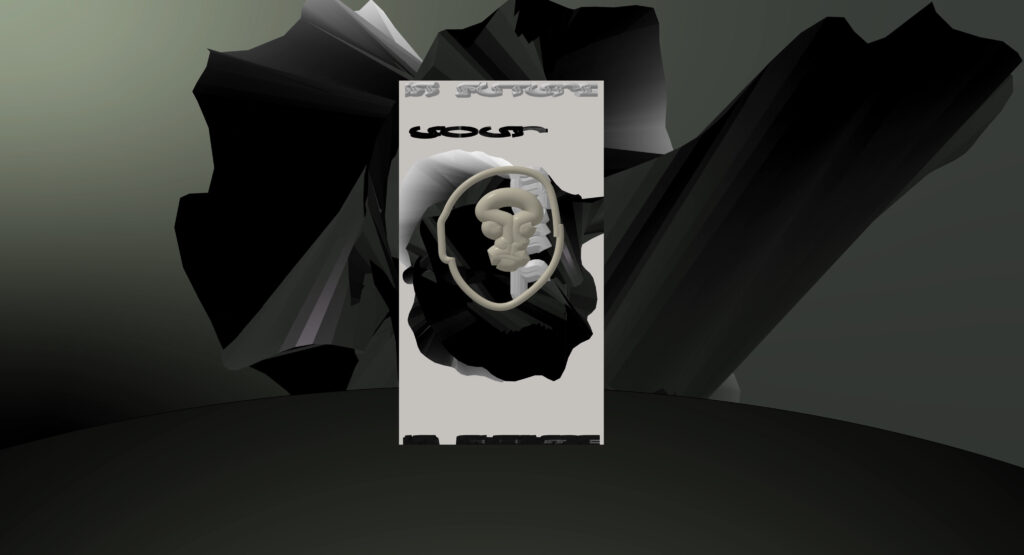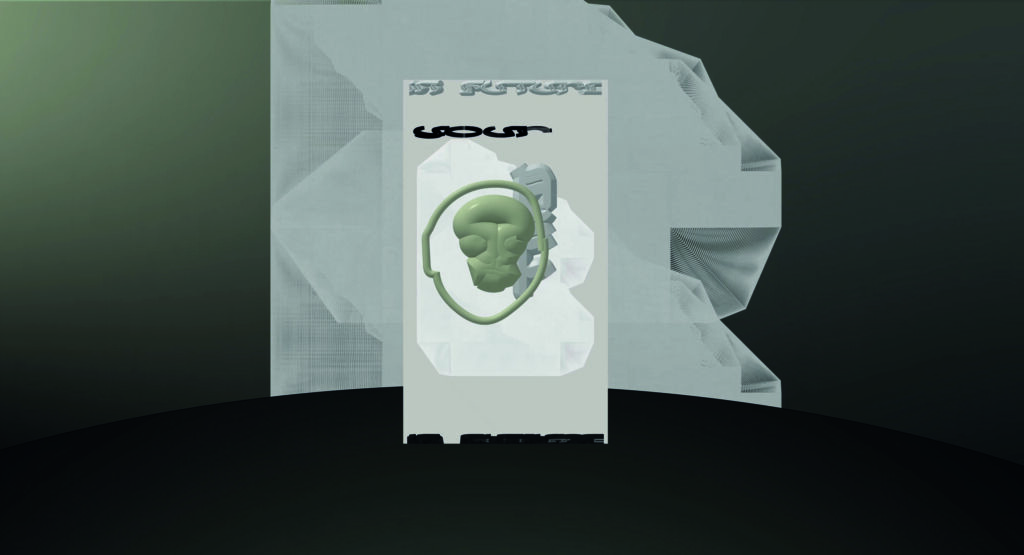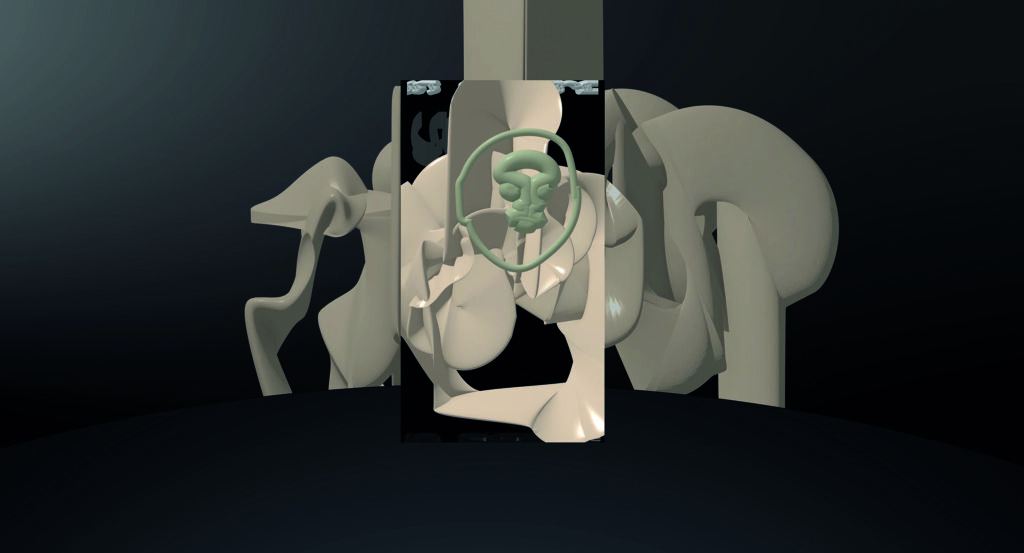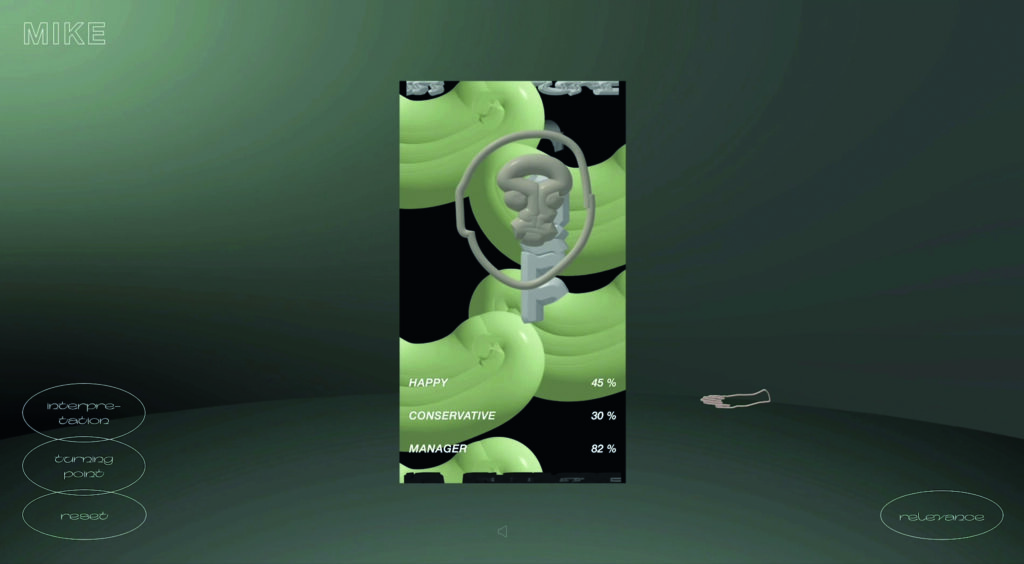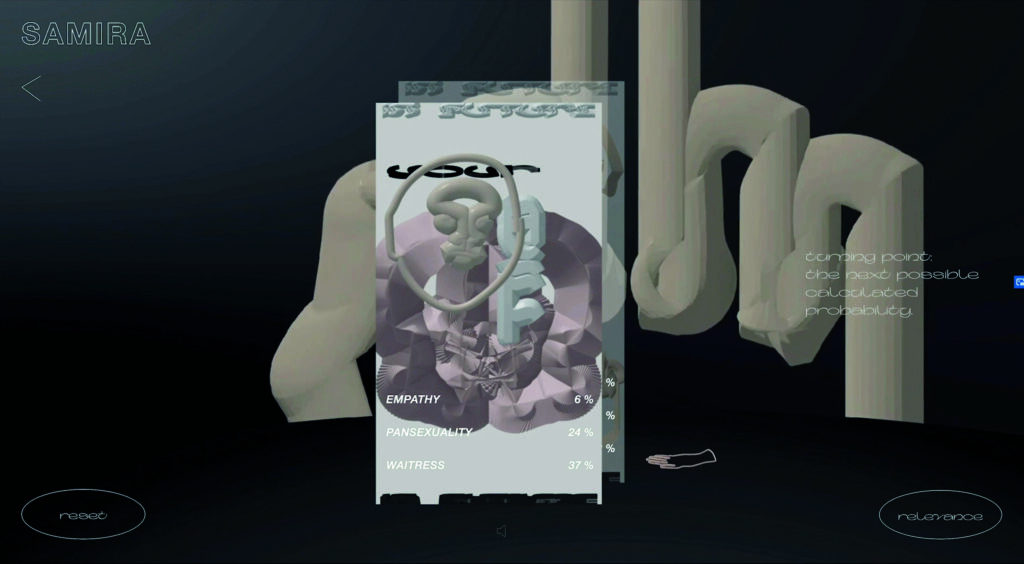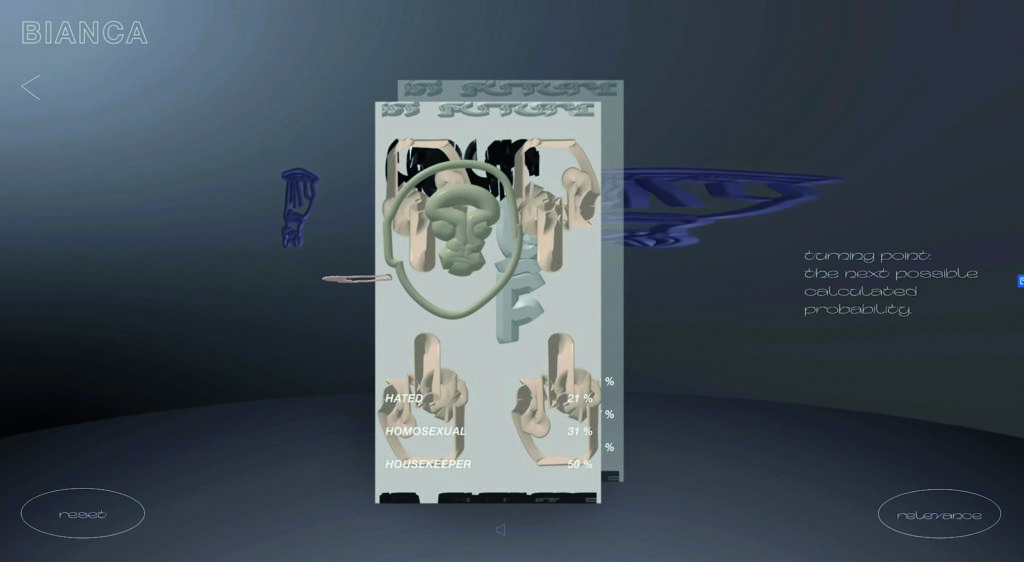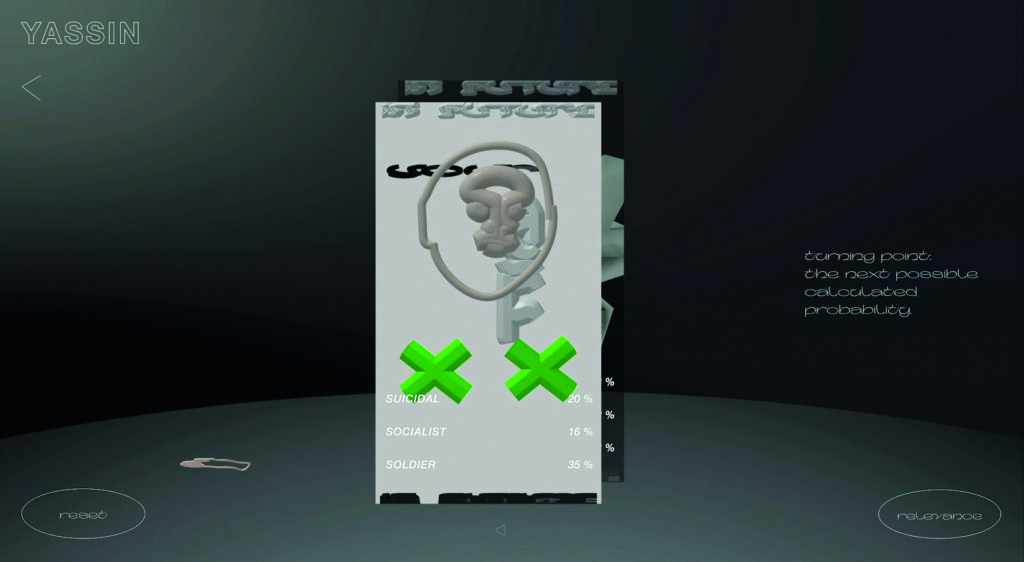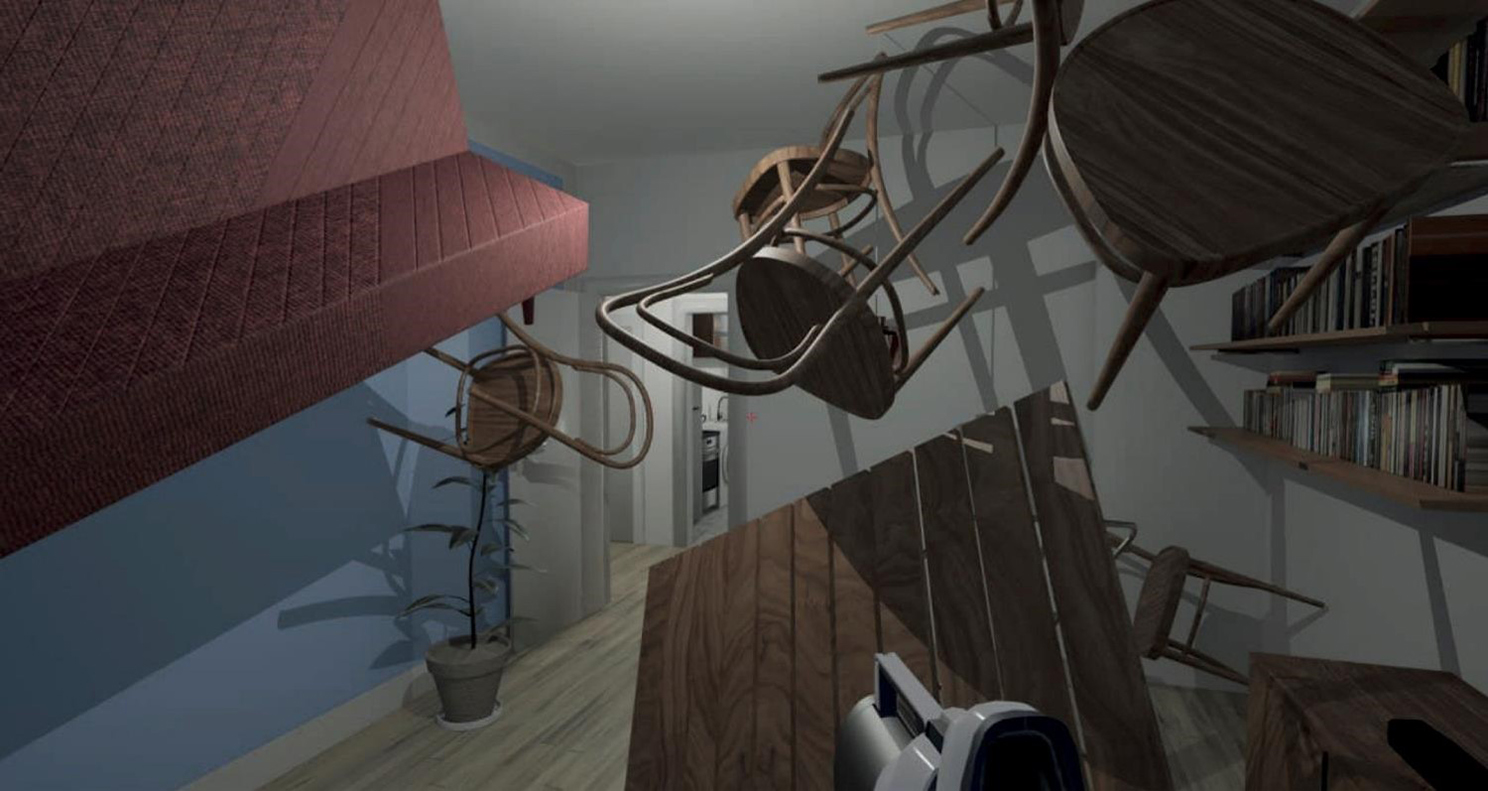What to name Your Future Kids – Master-Thesis 2021
Mike is happy and Bianca is a housewife, Lasse is a composer and Lily is loved – this is what the future could look like if determined by an algorithm oracle. What to Name Your Future Kids by Cara Celine is a digital tarot that predicts the future on the basis of names. The oracle that speaks to us is the word-embedding algorithm GloVe.
What to Name Your Future Kids makes it possible to see and experience the bias of artificial intelligence and algorithms – and exposes them as self-referential systems that reflect prevailing prejudices.
In an era of platform capitalism we are surrounded by algorithms every day. Their rules and recommendations as to what we can and cannot see determine how we construct knowledge and our world view. Algorithms decide what political opinions we are exposed to, and what jobs, what shoes, and what (sex) partners we are offered. Algorithms support numerous businesses and government agencies in their work – in Germany, for instance, the Federal Agency of Migration and Refugees, and the police.
The visual imagery of What to Name Your Future Kids is magical and sacred, abstract and crystalline. The architecture of the website reflects the stylistic idiom of Cara Celine’s designs: In her work, Celine integrates elements from painting, plays with proportions, and thus achieves multidimensional digital materiality. Upon opening the website, users enter a dark digital space. A central rectangle with oscillating wavelike structures represents the tarot card, the door to the realm of the oracle. As soon as the user enters the name, an abstract figure appears – a free-floating face or a brain – the oracle, the ki. The sound enhances the dystopically mythical effect. Like a huge machine set in motion, revolving, vibrating and serpentine, the elements slowly and powerfully engage with each other. The algorithm calculates the output. In three associated words, the output summarises in what contexts the names appear according to the calculations of the algorithm, and thus what opportunities and destinies are in store for those who bear a particular name. For example: hated, polyamory, hairdresser (Celina) or successful, liberal, composer (Lasse). If by chance one enters a surname (Basra) that is also the name of a city which is involved in many military conflicts, the oracle’s associations are victim, socialist, and policeman.
For the design of the tarot cards, Cara Celine has created 3D symbols that symbolically represent the outputs – depending on output and percentage value, the latter generically scale and multiply. The basic forms are derived from symbols and emoticons that we use in our daily communication and in social media; distortion and loop are used as stylistic devices analogously to the subject of the project.
What names should we give our children so that they will grow up to be successful and happy? The brightest future a woman can expect, as experimentation with the tarot shows, is to be loved. For men, the most awesome prospect imaginable is being successful.
GloVe is a globally used unsupervised learning algorithm that was developed by Stanford University and that vectorially calculates spatial proximity to certain contexts. In “unsupervised learning” volumes of data are not labeled; this way, far larger volumes of data can be processed. The algorithm is trained by providing it with billions of texts and scholarly articles available on the internet.
In What to Name Your Future Kids, GloVe calculates the probable context for user input and manifests the latter in a prophecy. It thus playfully reveals the algorithmic processes. Unlike in cases where an algorithm is actually used in decision-making processes, users are made aware of the bias. However, the actual basis for the algorithm’s calculations remains hidden and leads, in part, to amusing or surreal-seeming outputs. At the same time, though, the user of the tarot should not forget that the output is a mirror of the global society (especially of industrially developed countries, of course). When the outputs calculated from statistical data are then concretely applied to individuals, we get the well-known phenomenon of a self-fulfilling prophecy. In the case of What to Name Your Future Kids this simply means that names with unpleasant associations are avoided. But if this insight is applied in actual real-life situations, we realise how the thoughtless use of algorithmic systems may result in the reinforcing of prejudices and stereotypes.
While algorithms as a rule indicate only the result of the highest figures, Cara Celine also integrates the output for the next possible probability in her digital tarot, which sometimes even shows the opposite results – truth becomes relative. Algorithms are as fallible as the information they are fed. Thus it became apparent that the algorithm of the American COMPASS programme used racist prejudices and predicted that on the average, when it came to making decisions whether to grant probation, African Americans were at increased risk for recidivism. An Austrian employment agency, using an algorithm, claimed that men had better job prospects, which directly affected support for job seekers.
When algorithms make decisions, it is often hoped that they make them freely and impartially – just as the development of the World Wide Web brought with it the hope for free and democratic dissemination of knowledge, a “civilisation of the mind”. What to Name Your Future Kids illustrates the fact that this is not the case, and places users in an emotional quandary. What do I name my future kid if I assume that the child’s personal data will play a role in the algorithmic assessment involved in applying for a job, the granting of credit, law enforcement, etc.?
Contact: studio@caraceline.de
